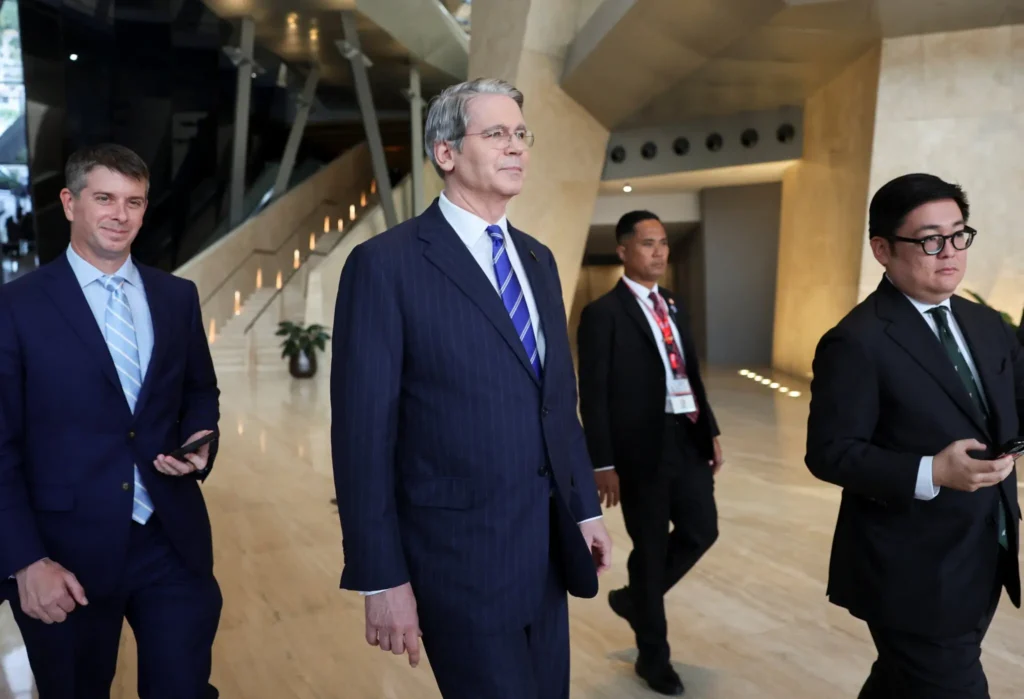U.S. and China have reached a preliminary trade deal framework ahead of a major summit between President Donald Trump and President Xi Jinping. The agreement aims to ease tensions and create a foundation for broader economic cooperation.
The preliminary deal includes a delay in implementing planned steep tariffs on key imports. Both countries hope this pause will create a more stable environment for trade negotiations and avoid disruptions to global markets.
A major component of the framework is the potential approval of the TikTok sale in the United States. Discussions are ongoing about the terms and timeline for the social media platform’s transfer to U.S. ownership, which could resolve long-standing security concerns raised by American officials.
China has also agreed to postpone export controls on rare earth minerals for one year. These minerals are essential for the production of electronics, renewable energy technologies, and defense systems. The delay is expected to prevent supply chain disruptions and allow businesses on both sides to adjust to market changes.
Economic experts say this preliminary agreement could pave the way for more detailed negotiations in the coming months. Analysts believe the move shows a willingness from both sides to find a compromise before the high-profile summit.
“The framework demonstrates both governments are ready to engage constructively,” said a trade analyst. “It’s a cautious but important step toward a more stable trade relationship.”
The decision to delay tariffs is particularly significant. Previous rounds of tariffs have strained businesses and raised costs for consumers. By holding off on further increases, the U.S. and China may help prevent additional economic shocks in industries such as technology, manufacturing, and agriculture.
Investors have reacted positively to the news. Stock markets in the U.S. and Asia showed modest gains, reflecting optimism that a larger, long-term deal could be reached. Market watchers also noted that companies directly affected by trade restrictions, including tech firms and exporters, stand to benefit from the temporary reprieve.
The TikTok deal remains closely monitored by regulators and lawmakers in the United States. The sale, if finalized, would involve U.S. investors acquiring a controlling stake in the company. Officials hope this will address national security concerns while preserving jobs and innovation in the U.S. tech sector.
Meanwhile, China’s agreement to delay rare earth export controls may ease tensions in global supply chains. Rare earth minerals are critical for smartphones, electric vehicles, and defense equipment. By postponing restrictions, China signals that it wants to avoid escalating trade conflicts while maintaining leverage for future negotiations.
Both nations have emphasized that this is a preliminary framework rather than a final agreement. Negotiators will continue to work on details, including tariff schedules, enforcement mechanisms, and broader trade rules.
Economists stress that the outcome of the upcoming summit will be crucial. While the preliminary framework is a positive sign, achieving a full agreement will require compromise on sensitive issues such as technology transfers, intellectual property, and market access.
The U.S.-China trade deal framework reflects growing recognition on both sides that cooperation is essential for economic stability. By addressing key concerns in advance of the summit, leaders aim to build momentum for a more comprehensive agreement in the future.
If finalized, the deal could reduce uncertainty for businesses and investors worldwide. Experts note that clear rules and predictable trade conditions would benefit manufacturers, exporters, and consumers in both countries.
Overall, the framework marks a notable step forward in U.S.-China relations. While challenges remain, the agreement shows that dialogue and negotiation can create solutions to complex trade disputes, potentially avoiding further economic friction.

